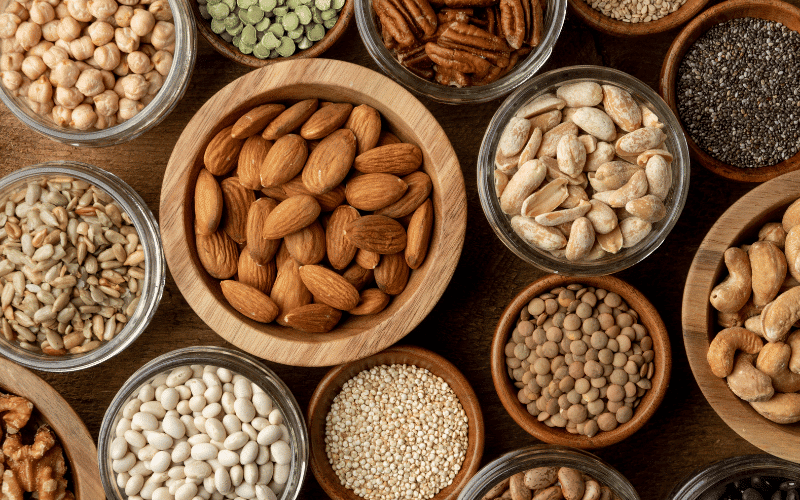10. Nuts and Seeds: The Healthy Snack With a Kidney Caution

Nuts and seeds are an excellent source of nutrients, including healthy fats, fiber, protein, and vitamins and minerals. They are often referred to as “superfoods” due to their high nutrient density and potential health benefits. However, it’s important to remember that while nuts and seeds can be a healthy snack, they also contain high levels of phosphorus, which can be a concern for people with kidney disease.
People with kidney disease often need to limit their intake of phosphorus, as the kidneys are not able to remove excess phosphorus from the blood effectively. High levels of phosphorus can lead to mineral imbalances and weaken bones. Additionally, a diet high in phosphorus can also worsen kidney function and increase the risk of cardiovascular disease in people with kidney disease.
Nuts and seeds are some of the foods that are highest in phosphorus. For example, almonds, Brazil nuts, and pumpkin seeds are all high in phosphorus. It’s important for people with kidney disease to monitor their intake of nuts and seeds, as well as other foods high in phosphorus, such as dairy products and whole grains.
However, it’s important to note that not all nuts and seeds are created equal. Some nuts, such as pecans and macadamia nuts, are relatively low in phosphorus and can be a better option for people with kidney disease. It’s also important to choose unsalted nuts and seeds, as the added sodium can increase blood pressure and worsen kidney function.
Nuts and seeds can be a healthy snack for most people, but for those with kidney disease, it’s important to monitor their intake of phosphorus. By choosing low-phosphorus nuts and seeds and avoiding added sodium, people with kidney disease can still enjoy the health benefits of these nutritious foods. It’s always a good idea to talk to a doctor or a registered dietitian to determine the best dietary plan for your specific needs. (10)